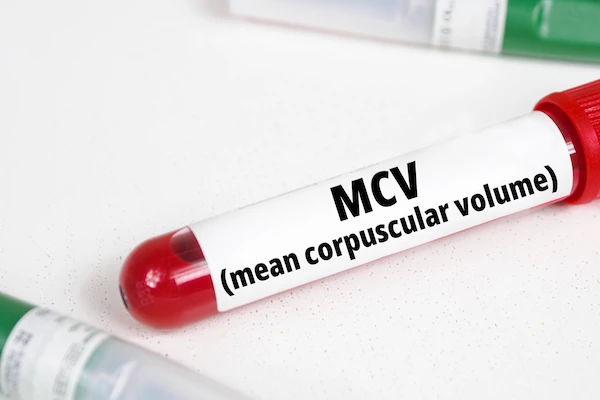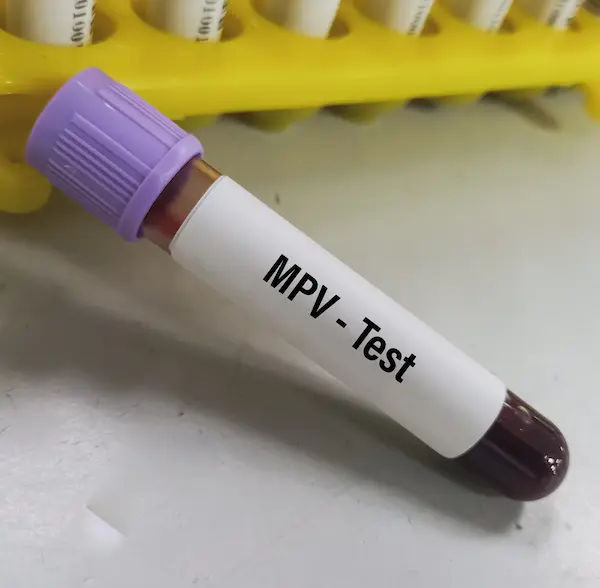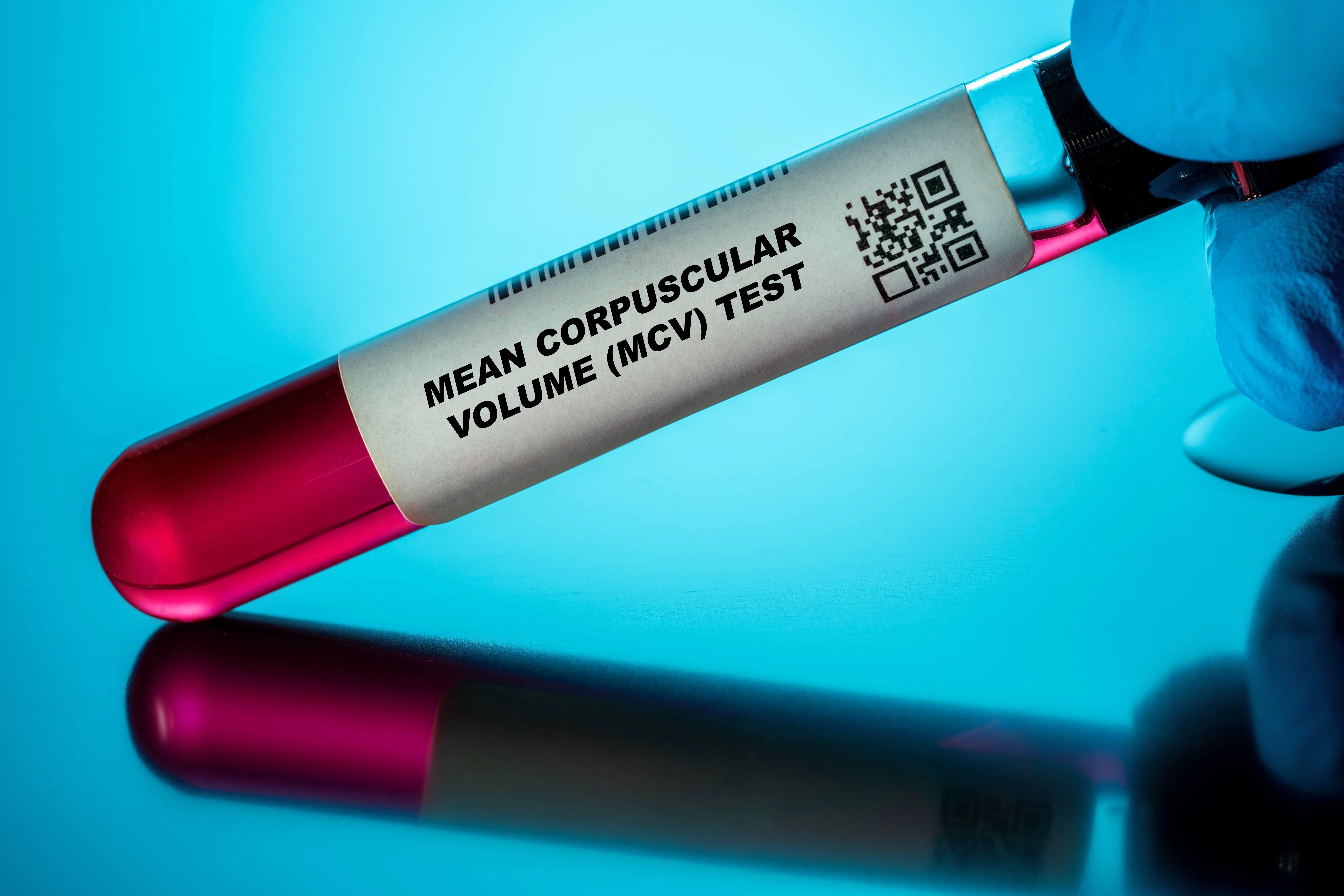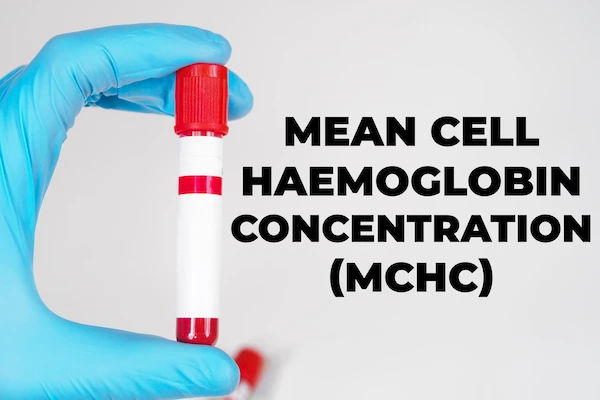MCV Full Form in Medical Terms
know what is MCV, its significance, its different levels, interpretation of levels A, symptoms and causes of abnormal levels of MCV.

Written by Dr. Rohinipriyanka Pondugula
Reviewed by Dr. J T Hema Pratima MBBS, Fellowship in Diabetes Mellitus
Last updated on 29th Jul, 2025

When you get a blood test, you might come across the term MCV in your report. If you're wondering what it means and why it matters for your health, this article is here to help.
What is MCV?
MCV stands for Mean Corpuscular Volume. It is a measure of the average size of your red blood cells (RBCs). Red blood cells carry oxygen from your lungs to the rest of your body. The MCV value helps doctors understand whether your RBCs are normal in size or if there’s an underlying health issue.
Why is MCV Important?
Your MCV level can tell your doctor a lot about your blood health. It helps diagnose different types of anaemia (a condition where you don’t have enough healthy red blood cells) and other blood disorders.
What Do Different MCV Levels Mean?
MCV levels are measured in femtoliters (fL). The normal range is usually between 80 and 100 fL. Depending on your MCV value, doctors classify anaemia into three types:
1. Low MCV (Microcytic Anaemia – Below 80 fL)
- Your red blood cells are smaller than normal.
Common causes:
- Iron deficiency (most common)
- Thalassemia (a genetic blood disorder)
- Chronic diseases
2. Normal MCV (Normocytic Anaemia – 80-100 fL)
Your red blood cells are normal in size, but you may still have anaemia.
Common causes:
- Blood loss (e.g., from injury or surgery)
- Kidney disease
- Bone marrow problems
3. High MCV (Macrocytic Anaemia – Above 100 fL)
Your red blood cells are larger than normal.
Common causes:
- Vitamin B12 deficiency
- Folate (folic acid) deficiency
- Liver disease
- Alcoholism
Symptoms of Abnormal MCV Levels
Depending on whether your MCV is high or low, you may experience:
- Fatigue and weakness
- Pale skin
- Shortness of breath
- Dizziness
- Cold hands and feet
- Irregular heart
If you have these symptoms, it’s best to consult a doctor for further tests.
What Causes Abnormal MCV Levels?
Low MCV Causes:
- Iron deficiency (due to poor diet, blood loss, or pregnancy)
- Chronic diseases (like infections or inflammatory conditions)
- Thalassemia (an inherited blood disorder)
High MCV Causes:
- Vitamin B12 or folate deficiency (common in vegetarians or people with poor absorption)
- Alcohol abuse (affects red blood cell production)
- Liver disease
- Certain medications (like chemotherapy drugs)
How to Improve Your MCV Levels?
If your MCV is abnormal, your doctor may recommend dietary changes, supplements, or further tests. Here’s what you can do:
For Low MCV (Iron Deficiency):
Include foods rich in:
- Eat iron-rich foods like:
- Red meat, poultry, and fish
- Spinach, lentils, beans
- Fortified cereals
- Take iron supplements (if prescribed)
- Pair iron-rich foods with vitamin C (like oranges) to boost absorption
- For High MCV (B12/Folate Deficiency):
- Include foods rich in:
- Vitamin B12: Eggs, dairy, fish, fortified cereals
- Folate: Leafy greens, citrus fruits, beans
- Take supplements if needed (especially for vegetarians/vegans)
- Reduce alcohol intake
Consult Top Specialist For More Health Benefits
When to See a Doctor?
Consult Top Specialist For More Health Benefits
If your blood test shows abnormal MCV levels, don’t panic—many causes are treatable. However, consult a doctor if:
You have persistent fatigue, dizziness, or weakness
- Your MCV is very high or low
- You notice unexplained weight loss or pale skin
- Your doctor may recommend additional tests like:
- Complete Blood Count (CBC)
- Iron, B12, or folate tests
- Bone marrow biopsy (in rare cases)
Final Thoughts
MCV is a simple but important blood test that helps detect anaemia and other health issues. If your levels are off, small changes in diet and lifestyle can make a big difference. Always follow your doctor’s advice for the best results.
Consult Top Specialist For More Health Benefits
Consult Top Specialist For More Health Benefits

Dr. Jawwad Mohammed Kaleem
General Practitioner
4 Years • MBBS
Hyderabad
Apollo 24|7 Clinic, Hyderabad

Dr. Suraja Nutulapati
General Physician/ Internal Medicine Specialist
10 Years • MBBS, MD (Internal Medicine)
Hyderabad
Apollo 24|7 Clinic, Hyderabad
(975+ Patients)

Dr. Mohammed Kamran
General Practitioner
5 Years • MBBS, FIDM
Nashik
Apollo 24|7 Clinic - Maharashtra, Nashik

Dr. Vasanthasree Nair
General Practitioner
15 Years • MBBS
Angamaly
Apollo 24|7 Clinic - Kerala, Angamaly
(525+ Patients)

Dr Divya Lekha Gunta
General Practitioner
10 Years • MBBS, MD (Pathology)
Visakhapatnam
Apollo 24|7 Clinic - Andhra Pradesh, Visakhapatnam
Consult Top Specialist For More Health Benefits

Dr. Jawwad Mohammed Kaleem
General Practitioner
4 Years • MBBS
Hyderabad
Apollo 24|7 Clinic, Hyderabad

Dr. Suraja Nutulapati
General Physician/ Internal Medicine Specialist
10 Years • MBBS, MD (Internal Medicine)
Hyderabad
Apollo 24|7 Clinic, Hyderabad
(975+ Patients)

Dr. Mohammed Kamran
General Practitioner
5 Years • MBBS, FIDM
Nashik
Apollo 24|7 Clinic - Maharashtra, Nashik

Dr. Vasanthasree Nair
General Practitioner
15 Years • MBBS
Angamaly
Apollo 24|7 Clinic - Kerala, Angamaly
(525+ Patients)

Dr Divya Lekha Gunta
General Practitioner
10 Years • MBBS, MD (Pathology)
Visakhapatnam
Apollo 24|7 Clinic - Andhra Pradesh, Visakhapatnam




